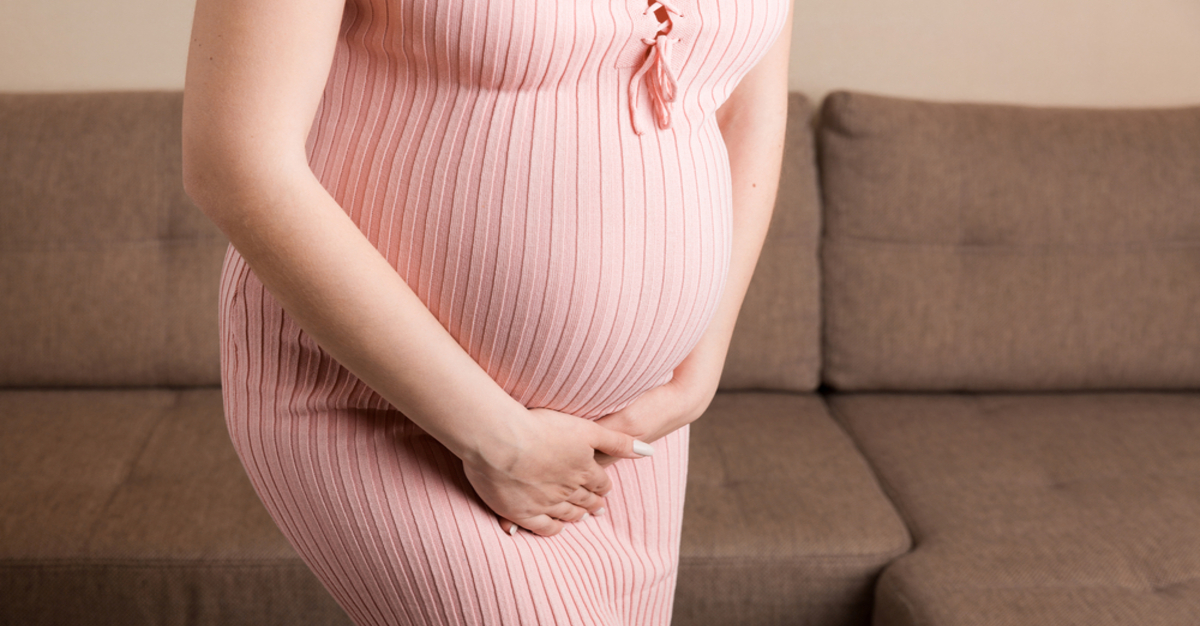
Have you ever been in the middle of a particularly powerful sneeze when, suddenly, you feel that oh-so-familiar sensation of pee escaping your bladder? If so, then you are not alone. After childbirth, many women experience urine leakage—also known as stress incontinence—when they sneeze, cough, or laugh. It’s normal and it’s nothing to be ashamed of. Here’s what you need to know about stress incontinence post childbirth.
What is Stress Incontinence?
Stress incontinence is the involuntary leakage of urine during activities such as coughing, laughing, or sneezing. The reason this happens is because pregnancy and childbirth can weaken the muscles in your pelvic floor that keep your bladder closed until you’re ready to use the restroom. Common causes include pregnancy hormones that relax the muscles in your pelvic floor; pressure on the abdomen from a growing baby; and labor and delivery trauma (episiotomy and tearing).
Can Stress Incontinence Be Cured?
The good news is that stress incontinence can often be cured with lifestyle changes like pelvic floor exercises (sometimes known as Kegel exercises) these are exercises that strengthen the pelvic floor. The pelvic floor is a group of muscles and ligaments that support the bladder, uterus and bowel. Pelvic floor exercises involve repetition of both sustained and rapid voluntary contractions of the muscles throughout the day, therefore exercising and strengthening them back to pre-pregnancy strength. If you continue to have concerns about your symptoms of stress urinary incontinence, make enquiries about getting a referral to a specialist pelvic floor physiotherapist, they will be able to personalize care specially to your needs., and if needed they will be able to advice you with a referral to a urogynecologist. A urogynecologist will be able to examine you further and advice on treatment both conservative or surgical. Remember there is lots that can be done to improve/cure stress urinary incontinence.
Why Wasn’t I Warned About This?
Unfortunately, this is a common concern among new moms who weren’t warned about this possibility before giving birth. It’s important for midwives to talk about issues like these so that new mothers can prepare for them ahead of time and make informed decisions about their health care plans post childbirth. With more awareness around stress incontinence post childbirth, we can help empower new mothers to take charge of their own well-being!
Conclusion:
No one should have to go through life feeling embarrassed because they wee when they sneeze after having babies – it’s completely normal! While it may seem daunting at first, there are plenty of solutions out there that can help relieve the symptoms of stress incontinence post childbirth such as lifestyle changes like pelvic floor exercises or physical therapy/surgery if needed. Remember – knowledge is power! So, use your knowledge to improve your own health, pelvic floor muscles are like any other muscles if you exercise them well, they will work harder for you.
The information found anywhere on this website, including but not limited to text, graphics, images and any other material therewith is for information purposes only. No material on this website is intended to be a substitute for professional personalised medical advice, diagnosis or treatment. By providing the information contained herein we are not diagnosing, treating, curing, mitigating or preventing any type of disease or medical condition. Always seek the advice from a registered health care professional if you have any questions regarding any medical concerns or conditions. Do not disregard professional medical advice or delay in seeking it because of something you have read on this website.
This website is not meant to be self-treating but is a supplement to the care given by competent medical health professionals. Hegenberger Medical take no responsibility for any damage suffered by any woman or baby. Our opinions are our own and do not replace advice from competent medical health professionals. The material on this site may not be reproduced, distributed, transmitted, cached, or otherwise used, except with the prior written permission of Hegenberger Medical.
